The year 2024 was a challenging one in Nigeria’s power sector, marked by recurring grid collapses and vandalism of electricity infrastructure. The Nigerian national grid collapsed several times, resulting in widespread power outages across the country. The Transmission Company of Nigeria (TCN) attributed the collapses to vandalism and technical issues.
The sector also experienced broad challenges such as electricity policy enforcement difficulty, regulatory uncertainty, gas supply, transmission system constraints, and major power sector planning shortfalls.
In mid-2024, the Nigerian Electricity Regulatory Commission (NERC) approved a tariff hike for electricity consumers. In a significant development, the TCN was unbundled into two separate entities.
In this report, PREMIUM TIMES presents the key events that shaped the sector in 2024.
Low power/gas constraints
Earlier in the year, the TCN said that there has been a gradual decrease in electricity generated into the grid due to gas constraints. The company said this has impacted the quantum of bulk power available for transmission to the distribution load centres nationwide.
At the time, the Nigerian government attributed the poor power supply to the low supply of gas to generating companies (GenCos).
The Ministry of Power in conjunction with the Ministry of Petroleum Resources (Gas) in February set up a ministerial committee towards resolving the crisis.
Nigerians need credible journalism. Help us report it.
Support journalism driven by facts, created by Nigerians for Nigerians. Our thorough, researched reporting relies on the support of readers like you.
Help us maintain free and accessible news for all with a small donation.
Every contribution guarantees that we can keep delivering important stories —no paywalls, just quality journalism.
![//www.flickr.com/photos/oneterry/15143973918]](https://i0.wp.com/media.premiumtimesng.com/wp-content/files/2024/05/Power-line-towers.jpg?resize=1024%2C553&ssl=1) A transmission tower [PHOTO CREDIT: Ellesmere Port Cheshire https://www.flickr.com/photos/oneterry/15143973918]
A transmission tower [PHOTO CREDIT: Ellesmere Port Cheshire https://www.flickr.com/photos/oneterry/15143973918]Grid collapse
In 2024 the national grid recorded 12 collapses.
The first collapse occurred on 4 February, following a reported system failure by electricity distribution companies (DisCos).
On 28 March the country was thrown into darkness again following the collapse of the electricity grid controlled from Osogbo, Osun State. At the time, the TCN said the system disturbance was triggered by a significant reduction in generation capacity, primarily due to gas constraints.
Another collapse occurred on 15 April, throwing several cities into darkness. The collapse, according to TCN, was caused by a fire incident at the Afam power generating station, leading to a sudden generation loss of 25 MW and 305 MW, respectively.
On 6 July the grid collapsed yet again, marking the fourth disruption. The fifth collapse hit on 5 August leaving the nation in darkness once more.
The grid collapsed yet again on 14 October. A day later, a partial collapse occurred. At the time, the presidential candidate of the Labour Party (LP) in the last election, Peter Obi, described the incident as the failure of leadership and policy implementation.
On 19 October, the grid faced another disturbance. The TCN explained that the incident was a precautionary measure to prevent an explosion at the Jebba transmission substation.
On 22 October the grid collapsed again, leaving some states in northern Nigeria without power. At the time the TCN blamed the disturbance on vandalism and transmission line malfunctions.
On 5 November the TCN announced that the grid experienced a partial disturbance at about 1:52 p.m. At the time, the TCN explained that this followed a series of lines and generator trippings that caused grid instability and, consequently, the partial disturbance of the system.
Just two days after the incident, another collapse occurred on 7 November. The latest collapse, which occurred on 11 December, marked the twelfth collapse witnessed in the year.
 Power lines
Power linesVandalism
Vandalism of transmission infrastructure and distribution equipment was also a common occurrence in 2024.
In March, the TCN said one of its critical infrastructures, the Shiroro-Katampe 330 Kilo Volt (kV) transmission line, was vandalised, making it the fifth incident between February and March.
Reacting to the frequent vandalism of power infrastructure across Nigeria at the time, the Minister of Power, Adebayo Adelabu, recommended the death penalty for persons who steal power infrastructure.
Unfortunately, the government has yet to prosecute arrested vandals as they are usually released on bail by the police, according to the TCN.
The activities of vandals in the outgoing year threw the entire Bayelsa State into darkness for months.
In August, the TCN said two transmission towers, T98 and T99, along the Ahoada/Yenagoa 132kV line in the Igbooghene community of Bayelsa, were destroyed by vandals.
At the time, the TCN said the incident caused the collapse of both towers, cutting off the power supply to Bayelsa, including its Yenagoa Substation and the Gbarain Power Station.
Again in October, the TCN said its Shiroro-Mando transmission line was damaged due to sabotage, causing a power outage in many northern states.
In November, the Nigerian government said it had spent about N8.8 billion to repair transmission towers vandalised across the country. The Managing Director and Chief Executive Officer of TCN, Suleiman Abdulaziz, who disclosed this at the quarterly power sector working group meeting at the time explained that between 13 January and 27 November, 128 transmission towers were destroyed by vandals or bandits across the country.
On 18 December, the TCN said its 330kV Shiroro-Katampe transmission line had been vandalised again.
Tariff increase
In April, the Nigerian Electricity Regulatory Commission (NERC) announced a hike in the electricity tariff, affecting customers in the Band A category, who represent 15 per cent of the customers and consume 40 per cent of electricity output.
The policy allowed distribution companies (DisCos) to raise electricity prices to N225 ($0.15) per kilowatt-hour from N68, in return for guaranteeing 20 hours of electricity supply per day.
The government explained that the decision to implement the tariff increase was aimed at improving liquidity in the downstream power sector, as it had become difficult to sustain the subsidy in that sector.
However, the decision attracted criticism among Nigerians.
On 30 April, the House of Representatives urged NERC to suspend the tariff hike pending the conclusion of its investigation.
Following the resolution by the House, DisCos, on 6 May, announced tariff reduction. Announcing the reduction at the time, the distribution companies said customers in Band A will now pay N206.80/kwh from N225/kwh.
In July, DisCos proceeded with another hike and even upgraded more customers into the Band A category. Announcing the upward review at the time, the distribution companies said customers in Band A will now pay N209.5/kwh from N206.80/kwh.
In July, the House of Representatives asked the NERC and DisCos to revert to the old electricity tariff. They did not.
TCN unbundling
In the year, NERC officially unbundled TCN into two entities, namely the Nigerian Independent System Operator Nigeria Limited (NISO) and the Transmission Service Provider (TSP), in line with the provisions of the Electricity Act, 2023.
Metering
The metering of electricity consumers has been one of the key challenges facing the Nigerian Electricity Supply Industry (NESI) since the privatisation of the sector in 2005.
Despite numerous government initiatives to bridge the metering gap, the issue persists and was a significant challenge in the sector in 2024.
NERC in April took a significant step towards deregulating meter access in Nigeria to allow customers to procure meters from Meter Asset Providers (MAPs) based on competitive open market prices determined through transparent bidding frameworks.
 The Minister of Power, Adebayo Adelabu
The Minister of Power, Adebayo AdelabuOutlook
In October, Mr Adelabu said 1.3 million meters will be delivered between December 2024 and the second quarter (Q2) of 2025. At the time, he said the first phase of the meters will arrive in Nigeria in December, while the second phase will be received in the second quarter of 2025.
READ ALSO: UPDATED: Abuja to experience 16-day electricity interruptions – AEDC
Speaking with PREMIUM TIMES, Ogunrinde Adeola, an energy expert, said the country’s power sector is expected to experience significant growth in 2025, driven by increasing domestic gas demand and renewable energy development.
“Nigeria’s power generation capacity is expected to increase, driven by growing domestic gas demand,” he said.
He emphasised that addressing critical challenges will be vital to unlocking the sector’s full potential in the year.
“These challenges include addressing infrastructure deficits, particularly in transmission and distribution, resolving policy uncertainty to foster a more favorable investment climate.”
By tackling these challenges, he said Nigeria can harness its vast energy resources, drive economic growth, and provide reliable electricity to its citizens.
Support PREMIUM TIMES' journalism of integrity and credibility
At Premium Times, we firmly believe in the importance of high-quality journalism. Recognizing that not everyone can afford costly news subscriptions, we are dedicated to delivering meticulously researched, fact-checked news that remains freely accessible to all.
Whether you turn to Premium Times for daily updates, in-depth investigations into pressing national issues, or entertaining trending stories, we value your readership.
It’s essential to acknowledge that news production incurs expenses, and we take pride in never placing our stories behind a prohibitive paywall.
Would you consider supporting us with a modest contribution on a monthly basis to help maintain our commitment to free, accessible news?
TEXT AD: Call Willie - +2348098788999


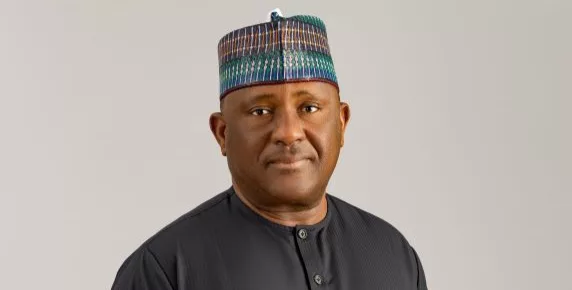


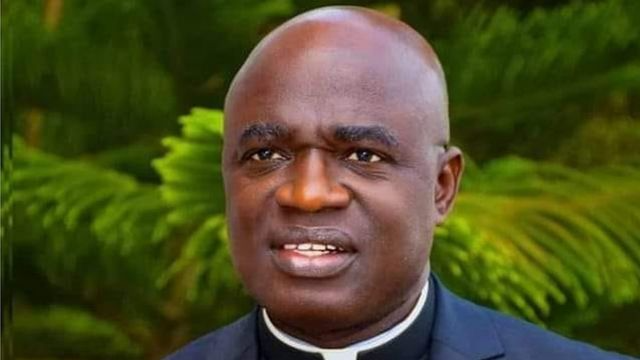
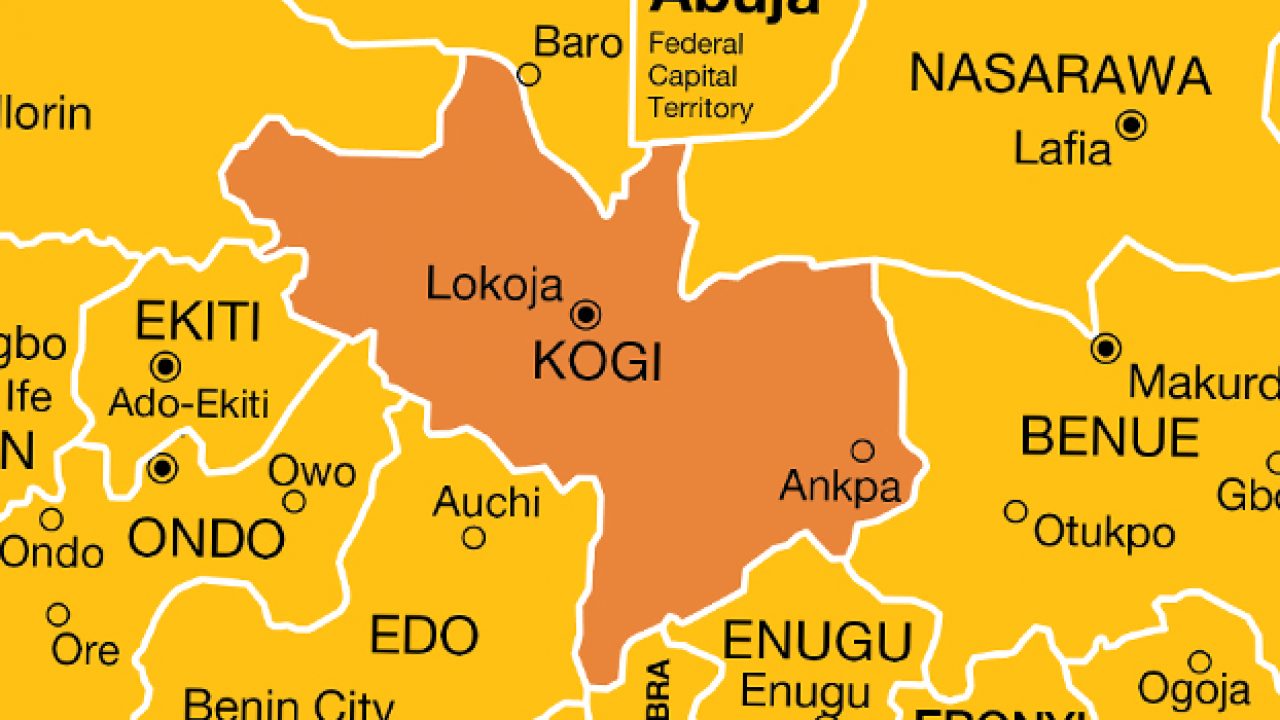



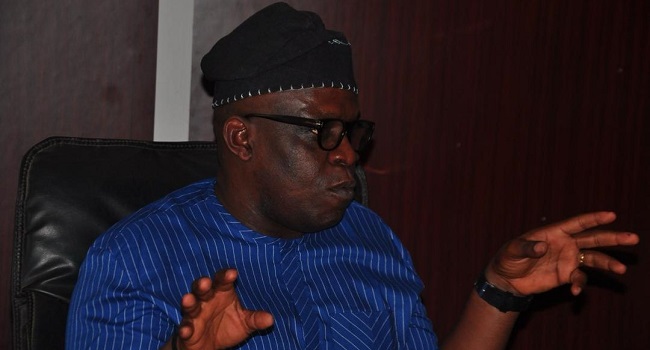




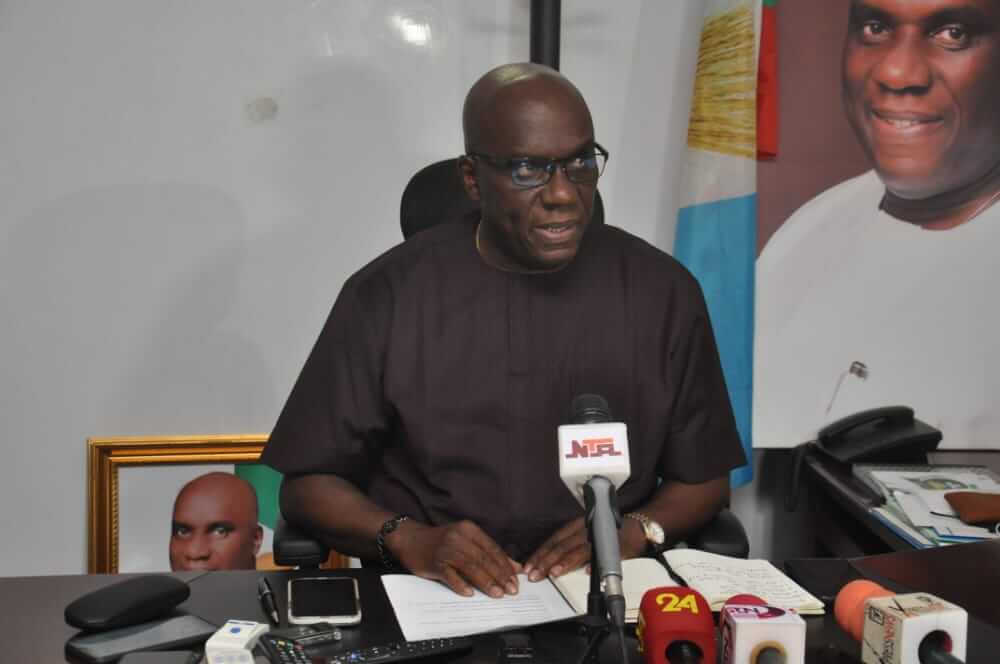

 English (US) ·
English (US) ·